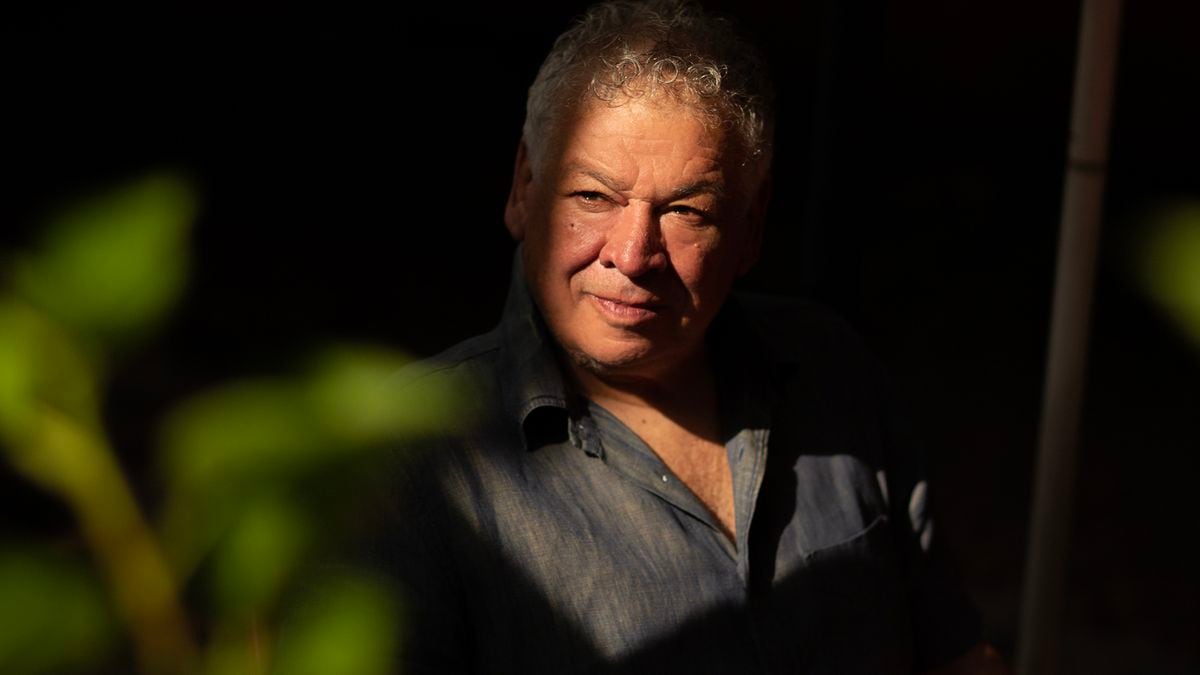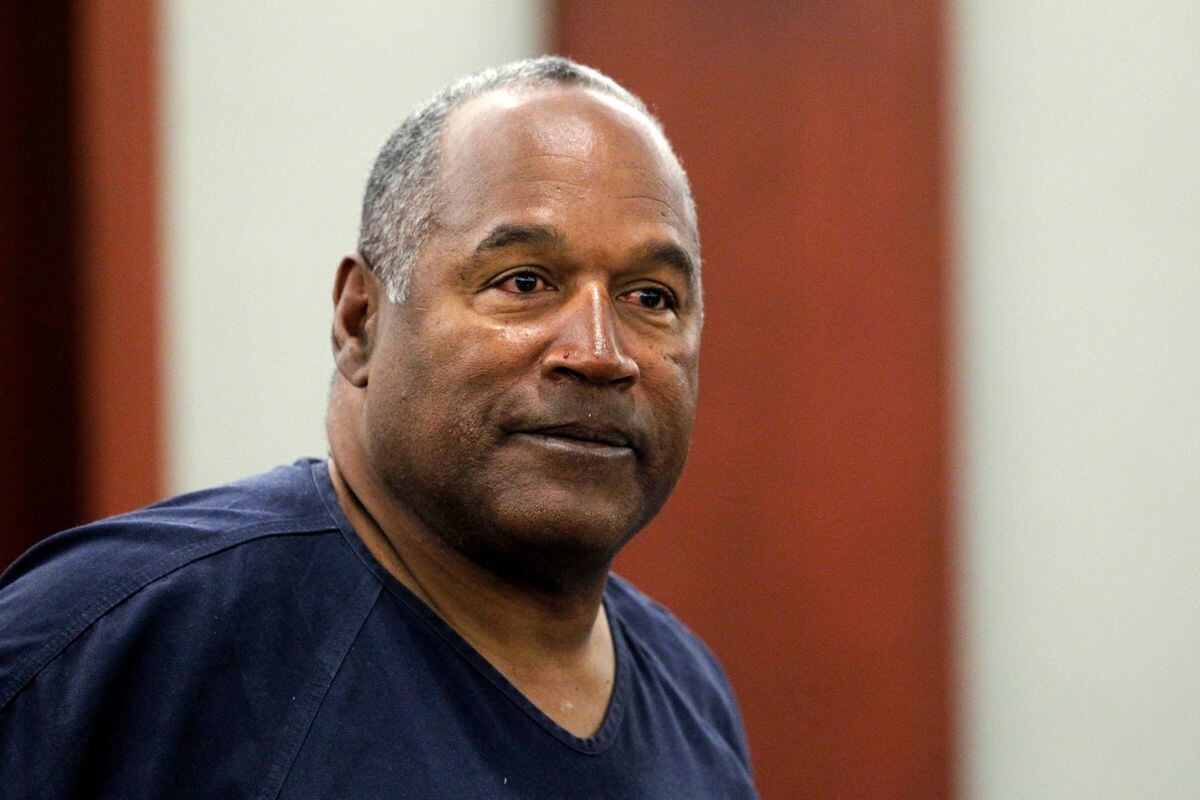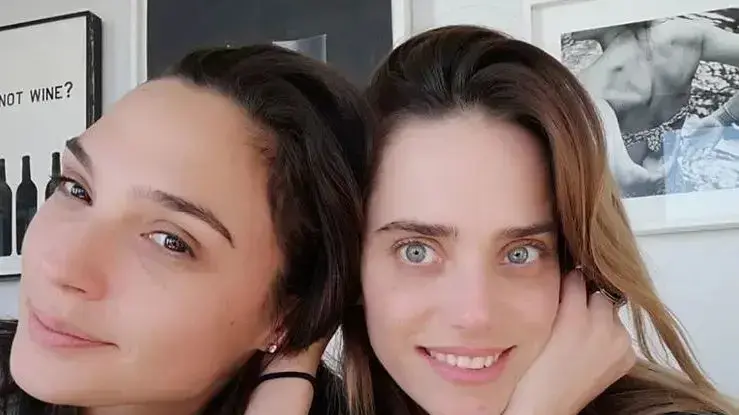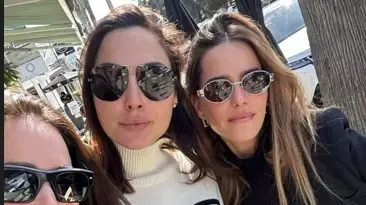Not many people have the salvific gift of laughing out loud.
Francisco Goldman (Boston, 68 years old) is fortunate to be one of them.
Without him, perhaps she would not have been able to bear so much horror: the scorn and beatings of his father;
coverage of the wars in Central America;
the death of her first wife, the writer Aura Estrada, by a wave that hit her against the sand and severed her spinal cord.
Her love story with her and her final tragedy were told in a memorable work,
Say her name
From her (Sexto Piso, 2011).
The subsequent duel turned him into
El circuito interior
(Turner, 2014), a chronicle of his catharsis in his adoptive homeland, Mexico City.
In
Monkey Boy
(Almadía; translation by Daniel Saldaña París) explores his childhood traumas and completes with the two previous books a trilogy that is a high level of the autobiographical novel.
Recognized in 2022 with the American Book Award and a Pulitzer finalist, it is a mosaic of memories that the author puts in the mouth of an
alter ego
named Frankie Goldberg, a name copied from his with which he mocks our itching to know what part of a book—and oneself—is true or false.
Frankie, like Francisco, today a happy father of a family who attends us on a visit to Madrid, is a boy from the suburbs of Boston who was nicknamed "chimpanzee boy" at school, the son of a Guatemalan, Catholic, sweet and funny mother, and a father of Ukrainian origin, a secular Jew, a dental technician, a Democratic voter, a lover of horticulture and a rabid enemy of his own family.
His name is Bert Goldberg, like Francisco's, who also made false teeth.
Was Bert Goldman also a bad person?
Well, I don't know if I would say that he was a bad person.
More than anything I see him as a sick person, with a rage that he could not control, against life, against us, against himself.
However, he gave the impression to others that he was an upright and kind man.
All the neighborhood kids adored him and came to help him with the garden.
My mom used to say, "Your dad likes all families except his."
You did not work with him in the garden.
Never.
Because he wouldn't let him or because he didn't want to?
I didn't want to and he wouldn't let me.
I hated it?
Not as a child, as a child above all I was afraid of him.
I started to really hate him when he was a teenager.
And he hit him, just like Frankie Goldberg in the book – “as if driven by the impulse to finish him off once and for all” -.
Yes, exactly like in that scene.
The novel is full of invented things, but I wanted to tell this literally, and it was very strong to relive those emotions.
Like the night he beat me up in front of some cops at a police station.
When I got home, I felt so much hate that if someone had given me a knife, I would have killed him at that moment, and maybe I would have also killed my mom for being so passive in front of him.
It was terrifying.
While I was writing I didn't see it coming, I got there and it scared me.
All that anger stored up for years.
What was wrong with his father?
Well, my book is not a work of psychoanalysis or anything similar, but one can speculate.
His rage could come from being trapped in a life he hated, it could come from self-hatred, it could come from the fact that he might very well be gay, and at that time an ordinary family man couldn't come out of the
closet
… There was no love at all. in their life.
I never saw my dad caress my mom in my life, nor did she caress him, even though my mom was the most tender person in the world.
But not with him.
Obviously, how was she going to be tender with a man who insulted her, just like my sister, and that she came to hit him?
He created his own hell for himself and didn't have the courage to divorce and let us go.
It would have been fair to say: “I am creating a toxic family.
I am unhappy.
I must go and leave these poor people alone."
“I thought that my whole life had been an escape from my father and with the book I discovered that it had been a journey towards my mother”, says Francisco Goldman.Ana Hop
At school, like Frankie, were you also
bullied
?
Not so much.
But there was an extreme moment, which I deal with in the novel.
When, when I was 13 years old, I kissed a girl and on Monday, when I got to school, a supercharismatic and disastrous guy, misogynist, conceited and supernarcissistic, made up that she had said that when I kissed her she felt like a banana eaten by a monkey.
It became the joke of the year in school and destroyed my adolescence.
I learned a few years ago that he had become a millionaire and headed the Tampa Trump Supporters Club.
How long did it take to get over it?
I did not dare to kiss a girl again.
My knees were shaking.
I was convinced that he was really ugly and ridiculous, he turned me into a Kafka monster character.
When I got to college and some woman hit on me, I thought she was setting me up.
At first I didn't believe it could be attractive.
I had a hard time losing that horrible fear.
What were you looking for when writing
Monkey Boy
?
I wanted to explore my roots and I thought that in order to understand who I was, I had to explore my relationship with my father.
I thought that my whole life had consisted of running away from him, that hence escaping from the United States, immersing myself in Latin America during the Central American wars, living in Mexico, marrying only Mexican women, that everything was going to be the opposite of my father. ;
but with the book I discovered that I was not running away from him, but that I was walking the path towards my mother, that I returned to his world, I returned to my mother's nest.
monkey boy
He helped me discover that I wasn't my dad's son, but my mom's son.
Even living under the shadow of my father's violence and with all her weaknesses, she continued to be a positive woman, and I identify with her.
Also, my mom laughed.
She and I always laugh a lot.
My dad never laughed, he didn't even know how to laugh.
“She had a wonderfully jovial, sometimes goofy laugh, but my father laughed less.
Instead she would sometimes hoot and howl as if pretending, imitating the happy animals of a barn.”
Is there nothing of him in you?
Yes, his skepticism of privileged people, very working class Bostonians;
he made fun of the
nouveau riche
, he did not like the vain at all.
Given the relevance of the experience in your writing, would you say that you are a realist writer?
Yes and no.
Yes, in the raw material that I use, but what I do are novels with a lot of fiction, even fantastic ones.
In
Monkey Boy
, from the beginning I play with an illusion of realism, with that character who, during a train trip, narrates his own life almost chronologically to himself.
Who would do that?
It's not realistic.
And the last part is like a ghost story: I did it on purpose, because I wanted to end up breaking the fourth wall of realism in an obvious way.
And the ghost story would complete the circle of memory, because all memory needs ghostly elements to function.
Well seen.
If you want, put it on and pretend I said it.
García Márquez said that he wrote so that his friends would like him.
You?
I write following an impulse that comes from within.
And also so that my friends love me.
Nothing makes me happier than when the writers I admire like Rachel Kushner, Lauren Groff, Valeria Luiselli, like what I've written… No one does it better than them now.
Gringo men no longer write good books... or, I don't know, I don't like their books, maybe it's just that, that for my taste the best that has been written in the US recently has been written by women.
Of the old ones he loved Saul Bellow, Isaac Bashevis Singer, John Cheever.
Roberto Bolaño has been important to me in Latin America, I admire Alejandro Zambra, Yuri Herrera, and César Aira.
Although my two contemporary literary icons are Toni Morrison and Natalia Ginzburg, whom I adore like a saint.
Because she?
He taught me everything.
Because of how he writes and where he comes from.
She witnessed horrible things, the Nazis killed her husband, they left her a widow with three children, and she writes from there, but without sentimentality, with dignity and elegance, putting traumas in their place and at the same time leaving free spaces for creation.
He inspires me a lot.
After everything you've been through in your life, the child abuse, the lonely years, the brutality you witnessed in the war, Aura's death...isn't it a little incredible that you've come to be so well By now, happy in Mexico City with his wife, Jovi, and their two daughters?
Yes, it is very crazy.
Sometimes I get the disturbing idea that I'm too happy and that it's something I still don't fully understand and I have to learn to work.
But I also have my worries, like money, because with children you feel more pressure to have financial security;
or age, I don't like getting old, and there are so many books I want to create.
Has been lucky?
No, I think I've finally known how to make good decisions and not always be so self-destructive.
It was.
Forever.
How did you get control of it?
The duel teaches you everything, there is nothing wiser and more instructive than a terrible duel that only you can get out of.
And from there you come out knowing better what you want, what you need and what things you should run away from.
He dedicates the book to four women.
Tell me first about her mother, Yolanda Molina.
What can I tell you, I loved her like crazy.
She is one of my favorite people of all time and the most important in my life, without a doubt.
His agent, the mythical Amanda
Binky
Urban.
It was key to this book.
When I submitted the first draft to the publisher, it was over 800 pages long and they were about to give up.
They couldn't with me anymore.
In addition, there was tension over things that they wanted to censor.
My agent knew that at that point the novel was a complete disaster, but she was convinced that there was a good work here, so she pushed me and I redid it until I had a completely new book.
Francisco Goldman's desk at his home in Mexico City,Ana Hop
What did they want to censor?
Things like Frankie's girlfriend not being 20 years younger than him, or gays from the '70s, pre-AIDS days, not seeming super uninhibited.
The publishers think that they are protecting the book from the complicated atmosphere we are in, but my fundamental position is that to write fiction you need total freedom and that you should not confuse the uncomfortable with the really offensive.
I don't want to hurt or offend for free, I don't.
So I defend what I write and ignore whoever wants to limit me.
That's what I did with my editor's suggestions.
She was exemplary: she respected him and, in the end, she even agreed with me.
Do you think that political correctness harms the quality of literature?
I think that in order not to get into trouble, I should answer you by self-censoring [laughs].
It's something perniciously ubiquitous in certain parts of the literary and university world in America.
There is a new way of reading with the eagerness of a moral police, and life and people are complex, passionately complex, labyrinthine in their confusions, sometimes thorny or demonic, twisted, harmless or aggressively driven by desire, not always admirable. , but sometimes noble in aspects hidden at first sight.
Perhaps this is what one wants to deal with in their fiction, and there will be many people who will not want to pay attention to such complexities, who are not willing to embrace the ambiguities or laugh even awkwardly.
They read for the pleasure of righteous indignation.
Look, it seems cool to me that someone dedicates her real life,
even their writing, to be part of the vanguard of change, we all want society to progress in every way, and me, with two little daughters, this fight obsesses me;
but I don't want political ethics to become a literary duty.
Tell me about your daughters.
Jojo is 10 years old and she is a beauty, she plays the piano, she is the captain of her soccer team and they just won a championship.
Azalea is four and she is extraordinary, with an innate sense of humor and a self-esteem that Jovi and I don't know where she comes from, because we grew up feeling marginalized, me such an insecure suburban child and her coming from poverty, the first of all. her family to go to college and, as her father says, the first to cross the border with a visa and passport.
Jovi is an amazing person.
In the last line of
El circuito interior
he wrote: "Jhoana Montes Hernández, my Jovi, you are the resurrection and the light."
And it continues to be that, and, furthermore, my partner in the task of creating a family, the most bastard there is.
Lasted?
strenuous.
How does Aura Estrada remain in your life?
It is always present, and its literary values continue to inspire me.
She was very talented.
I think that thanks to her I have gotten so close to female writers.
He says he doesn't want his daughters to grow up in the United States.
Why?
Well, because right now it is a country sunk in hatred, with an economic inequality that is a cancer, where the elites rise more and more, and to the rest,
good luck
, and in which it seems that the only important thing is what your identity is;
everything is identity, race identity, gender identity, hardly anyone talks about class identity and that a handful of people control everything and the rest are abandoned.
This obsession with identity bores me.
This is part of the narrative fabric of
Monkey Boy
.
There is a moment when the narrator says "I want to be nothing, why can't I be nothing?"
I have always wanted it.
Transcend identity.
Yes, I've spent my life, especially as a child, having to explain to people that I'm half Jewish and half Catholic, that at home we celebrated Christmas and Hanukkah, things like that.
Ridiculous!
What is it like to be half Catholic, to believe in a Christ who hangs only by one hand, one leg and half a trunk?
Nobody is half nothing, you are entirely who you are.
Point and end.
You are 100% Jewish, you are 100% Catholic, whatever you are is 100% you, and the mania of dividing and labeling and cataloging is…
is the fucking other people problem!
[the problem of others].
Why did he title the book with a nickname that hurt him so much when he was little?
Because it's the perfect title.
I like
Monkey Boy
as a metaphor.
It was ambiguous in my case, it could also be taken as something fun or even affectionate.
If a black child is called a
monkey
, he will know that this is racist, it cannot be anything else;
But someone like me, who is Guatemalan mestizo-mulatto and a white Jew at the same time, doesn't know for sure if he is racist or if they really think he looks like a monkey.
This is the mestizo condition, and many times I have felt that my experience is annoying because it does not fit into the current discussions of identity, that I am something like ethnically incorrect and that it is better to ignore people like me.
But, the truth is, it frees me to have that fragmented identity.
With the trilogy that closes
Monkey Boy
, Francisco Goldman considers his more autobiographical impulse satisfied.
He is now working on a story that he will set in New Bedford, a port south of Boston with a large Guatemalan community and the place where
Moby Dick
begins , in his opinion the only novel worthy of being called a great American novel.
Precisely with a phrase from Melville's classic, he decided to open his latest book: “Come on, you monkey,' said a harpooner”.
Subscribe to continue reading
Read without limits
Keep reading
I'm already a subscriber















